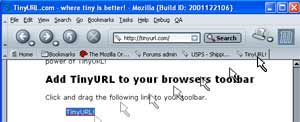 I am experiencing a quick turnaround, as I just returned from Sunriver, OR and am heading back out to Syracuse, NY. It was a spur of the moment decision to visit my younger sister and I booked the flight the same day that my wife gave me the OK to do so. I did my normal online sleuthing until I came up with the best combination of flight times and lowest price.
I am experiencing a quick turnaround, as I just returned from Sunriver, OR and am heading back out to Syracuse, NY. It was a spur of the moment decision to visit my younger sister and I booked the flight the same day that my wife gave me the OK to do so. I did my normal online sleuthing until I came up with the best combination of flight times and lowest price.The next day, I told one of my older sisters what I was up to and she considered going as well. I did a quick check on flight availability and figured that something was wrong, as the price she was quoted from the same airports was less than half of the price that I had paid upon booking the flight. Two Hundred and Twenty Four dollars on the shortest flight time round trip ticket from Seattle to Syracuse, NY.
She talked to her hubby and in the end decided not to leave the family on two days notice. By the time that decision was made, 24 hours after checking on her flights, the price was back to what I was paying.
That may not be surprising to anyone, as prices fluctuate on demand and availability. But I wondered what patterns might help in deciding when it was best to buy.
I don't need to think any more, as Dr. Oren Etzioni, a professor at the University of Washington and Director of the Turing Center, has addressed the issue with Farecast. Farecast is a intelligent search engine that uses patterns and algorithms to help predict when it is the best time to buy tickets. Given he was also involved with Netbot, MetaCrawler and sits on the board of Zillow, it is probably worth checking out.
I am running off now to catch my flight. Next time I will add a dimension to my search for tickets.


























